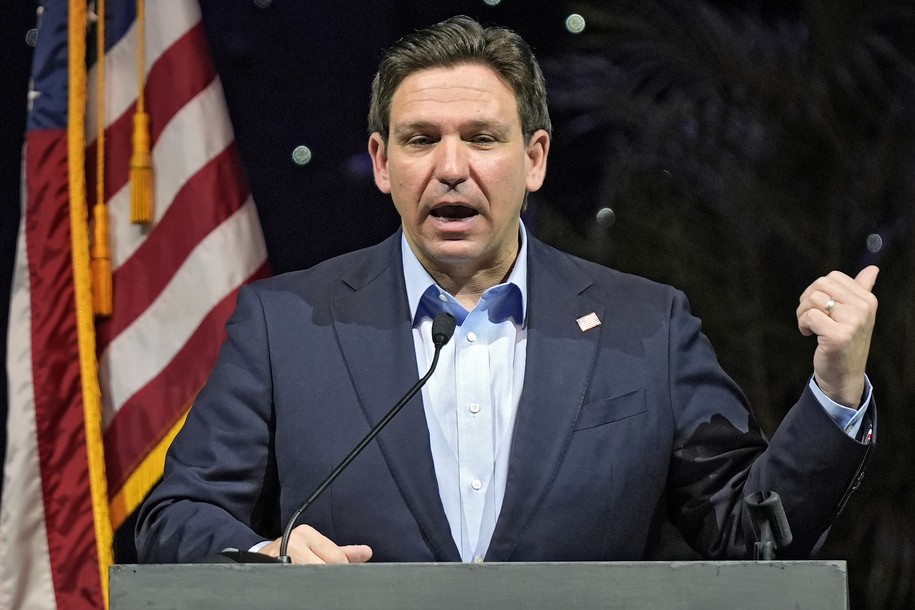Let’s check in on how the Republican war on free speech and academic freedom is going, shall we? While conservative attacks on universities are nothing new, the recent success they’ve had in using the levers of state power is of a relatively recent vintage. The latest skirmish is in Indiana, but they’re in no way alone in their attempts to turn their public universities into conservative mouthpieces.
On Thursday, Indiana federal judge Sarah Evans Barker, a Reagan appointee, threw out a lawsuit filed by four Indiana professors seeking to block the state from enforcing its “intellectual diversity” law. That law, which went into effect on July 1 requires public higher education institutions to grant, review, and deny tenure in part based on whether the professor fosters “a culture of free inquiry, free expression, and intellectual diversity” and whether they expose students to a “variety of political or ideological frameworks.”
If that sounds vague yet still bad, that’s because it is. The bill was pushed by conservatives who believe that conservative students and viewpoints are discriminated against in higher education.
Using the term “intellectual diversity” is the giveaway. It’s a favorite term of the right when they want to complain about how conservative viewpoints aren’t insufficiently coddled by higher education. It’s also the only kind of diversity conservatives really like.
Indiana’s law defines “intellectual diversity” but doesn’t explain what “free inquiry” and “free expression” mean. The extremely legitimate concerns of the professors who filed to block the law are two-fold. First, “intellectual diversity” is defined as whether the professor presents “multiple, divergent, and varied scholarly perspectives on an extensive range of public policy issues.”
One of the professors who sued teaches about the Holocaust and explained that divergent perspectives in Holocaust studies include outright Holocaust denial or revision. Another teaches about slavery, and divergent scholarly work on the institution of slavery includes the notion that slavery benefited Black people. Under the law, those professors would, arguably, have to teach those debunked and dangerous ideas to show a commitment to “intellectual diversity.”
The lack of definitions for the other term creates a different problem. If no one knows what “free inquiry” or “free expression” means under this law, no one knows how to avoid running afoul of it. Laws like this are unconstitutionally vague and chill speech because people begin to self-censor.
In dismissing the lawsuit as premature, Judge Barker said the professors have not yet been harmed because the policies universities must put in place based on those mushy words don’t exist yet. So, Indiana’s professors now start the school year with a law that applies to them and could cause them significant employment harm but without any guidance about how to avoid it.
Those professors got a glimpse of what Indiana believes free speech is when Indiana Attorney General Todd Rokita argued their case. He felt it should be dismissed because speech by university professors is actually government speech, and therefore, the university can control what they say.
That assertion flies in the face of every existing court decision about academic freedom for professors. These are decisions that have routinely concluded that the First Amendment protects speech at public universities when that speech is related to teaching or scholarship.
Rokita didn’t come up with this on his own–Florida has been trotting this reasoning out for a while to support its own version of Indiana’s law. In June, a lawyer representing the state told a federal appeals court, “In the classroom, the professor’s speech is the government’s speech, and the government can restrict professors on a content-wide basis and restrict them from offering viewpoints that are contrary.”
Florida is a valuable glimpse of what is to come when conservatives get a stranglehold on public universities. There, Gov. Ron DeSantis has made war on higher education a priority, handing over control of New College, a small public liberal arts school, to anti-education freaks like Christopher Rufo. On Tuesday, New College threw hundreds of books in a dumpster as it emptied its Gender and Diversity Center. The school abolished gender studies last year.
Meanwhile, Ohio is shoveling millions of taxpayer dollars into its “intellectual diversity centers” now required by law at multiple state universities. Lest anyone wonder if these would be anything but conservative grievance centers funded by taxpayer dollars, Ohio State University just tapped Lee Strang to head its newly opened Salmon P. Chase Center for Civics, Culture, and Society.
Strang, previously a University of Toledo law professor who conveniently helped write the law requiring intellectual diversity centers, is a prominent anti-abortion activist who believes in fetal personhood. He brags that the center will help people “flourish as citizens in our pluralistic Republic.” That’s a tough pill to swallow, given that he seems to believe anyone with a uterus isn’t fully a citizen.
And speaking of abortion, Idaho believes so much in the marketplace of ideas at public universities that it passed a law in 2021 banning public universities from using any taxpayer funds to “promote abortion, counsel in favor of abortion, refer for abortion.” Several university professors sued over the law, but their lawsuit was thrown out earlier this year for reasons similar to those in Indiana—that they have not yet experienced any harm.
The state’s attorney general informed the court that the professors would not be prosecuted for their teaching and scholarship about abortion. That’s great, but it still leaves everyone else vulnerable to a law that doesn’t define what promoting or counseling in favor of abortion even means.

In Texas now, criticizing the lieutenant governor can get professors investigated and formally censured. That’s what happened to opioid expert and Texas A&M professor Joy Alonzo after she gave a speech where she remarked on Lt. Gov. Dan Patrick’s handling of the opioid crisis.
Unsurprisingly, Patrick is also at the forefront of Texas’ attempt to eliminate tenure, which is another way red states seek to control public universities. North Dakota conservatives failed to end tenure for most community college professors in their most recent legislative session, but they’re teeing up another attempt. If they succeed, they’ll join Iowa, Montana, Nebraska, South Dakota, and Wisconsin as places that already restrict tenure for community college professors.
Over the last ten years, complete tenure bans have been proposed in Oklahoma, Iowa, Mississippi, Missouri, South Carolina, and West Virginia. A recent study found that when Republicans controlled the state legislature and governor’s office, the chance of a tenure ban bill being introduced was almost five times greater than in other states.
Conservatives will keep doing this because their war against higher education is part of their overall war on modernization and multiculturalism. They’re furious that they’re losing in the marketplace of ideas, and they will keep attacking their own universities until they break under the strain.
Campaign Action



